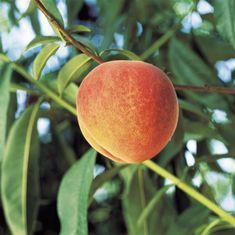
Chile’s peach, nectarine and plum growers need to pay particular attention to quality as this could be a bumper volume year, growers’ leaders are warning.
Cristián Allendes, vice-president of national producers’ federation Fedefruta, said: “This sector is characterised by complicated customer requirements and specifications and low returns. If Chilean production is too great and there is a lack of concern for quality, there could be serious problems when it comes to grower returns.”
Some 36,000 hectares are under stonefruit production in Chile and the unseasonably cool winter has benefited fruit production. The low temperatures meant increased chill units and improved dormancy for stonefruit trees. And as winter gives way to spring, there have so far been no problems with heavy rainfall that could damage delicate blossom. The result is a large number of flowers on trees and abundant fruit set.
But Allendes is warning growers to pay attention to thinning, otherwise there could be an abundance of small sizes many of which could prove unmarketable. Thinning was due to start in Chile this week and continue into October.
Decofruit analyst Isabel Quiroz warned in the Chilean press that a leap in production could have a detrimental effect on exports if it is not well managed. “In peaches there could be complications in the mid-way point in the season and for nectarines it could be even more complicated with the effect noticeable all the way through the export period.”
Meanwhile, in the UK this week, supplies of Italian peaches and nectarines are winding down although demand has enjoyed a late surge. “It is just the last knockings of the season, but we have seen good demand while we have had the nice sunny weather and as there is so little around, values have been holding up well,” said a spokesman from The Summerfruit Company.
“There will be a bit of a gap in supply now before the southern hemisphere comes on stream, but that is quite normal as demand usually starts to tail off at about this point in the season and temperatures are getting cooler,” he added.



